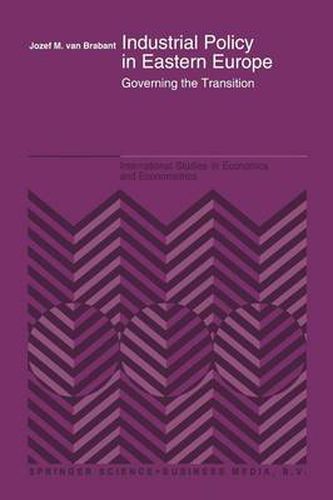Readings Newsletter
Become a Readings Member to make your shopping experience even easier.
Sign in or sign up for free!
You’re not far away from qualifying for FREE standard shipping within Australia
You’ve qualified for FREE standard shipping within Australia
The cart is loading…






This title is printed to order. This book may have been self-published. If so, we cannot guarantee the quality of the content. In the main most books will have gone through the editing process however some may not. We therefore suggest that you be aware of this before ordering this book. If in doubt check either the author or publisher’s details as we are unable to accept any returns unless they are faulty. Please contact us if you have any questions.
This volume in essence continues my recent contributions towards building up a better understanding of the wide range of obstacles besetting the transitions away from administrative planning in the former communist regimes in the eastern part of Europe. It is self-contained, however. As such, it specifically addresses issues revolving around how best to govern economies, and indeed societies more generally, that are undergoing fundamental structural transfor mation, and whether industrial policy can facilitate progressing with the vexing transformations that will have to be enacted over a protracted period of time. Because of the bewildering variety of hindrances that the managers of the transition have been confronted with, many of which were not even contem plated when the programs were first designed, regaining a measure of good governance, including notably good economic governance, is critical in formu lating a positive pOlitical economy of transition. Arguably most critical is steering the processes of destruction and creation-not ‘creative destruction’ in the Schumpeterian sense. In some cases, this requires reallocating decom missioned resources, both capital and labor, to new activities. Changing rules on the utilization of existing assets is evidently at the core of what the transi tion towards market-based economic systems should be all about Very often, however, this requires establishing new economic activities from domestic and foreign savings.
$9.00 standard shipping within Australia
FREE standard shipping within Australia for orders over $100.00
Express & International shipping calculated at checkout
This title is printed to order. This book may have been self-published. If so, we cannot guarantee the quality of the content. In the main most books will have gone through the editing process however some may not. We therefore suggest that you be aware of this before ordering this book. If in doubt check either the author or publisher’s details as we are unable to accept any returns unless they are faulty. Please contact us if you have any questions.
This volume in essence continues my recent contributions towards building up a better understanding of the wide range of obstacles besetting the transitions away from administrative planning in the former communist regimes in the eastern part of Europe. It is self-contained, however. As such, it specifically addresses issues revolving around how best to govern economies, and indeed societies more generally, that are undergoing fundamental structural transfor mation, and whether industrial policy can facilitate progressing with the vexing transformations that will have to be enacted over a protracted period of time. Because of the bewildering variety of hindrances that the managers of the transition have been confronted with, many of which were not even contem plated when the programs were first designed, regaining a measure of good governance, including notably good economic governance, is critical in formu lating a positive pOlitical economy of transition. Arguably most critical is steering the processes of destruction and creation-not ‘creative destruction’ in the Schumpeterian sense. In some cases, this requires reallocating decom missioned resources, both capital and labor, to new activities. Changing rules on the utilization of existing assets is evidently at the core of what the transi tion towards market-based economic systems should be all about Very often, however, this requires establishing new economic activities from domestic and foreign savings.